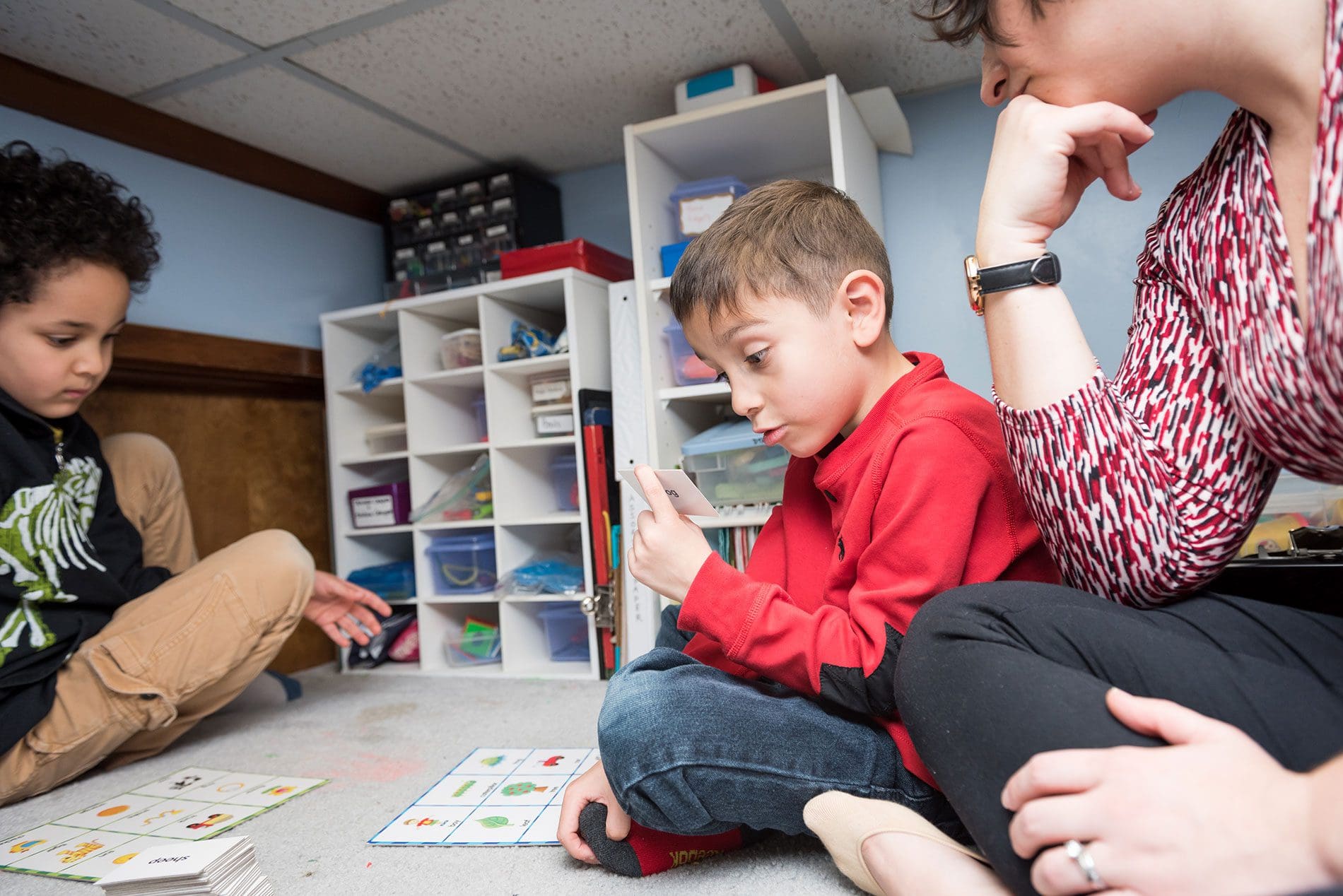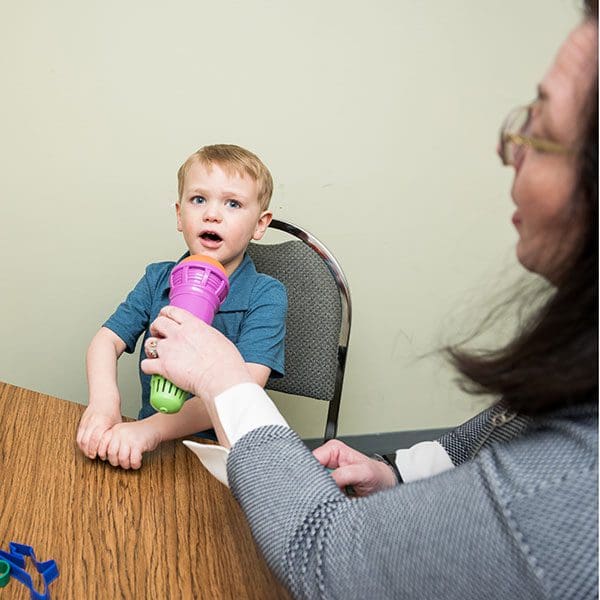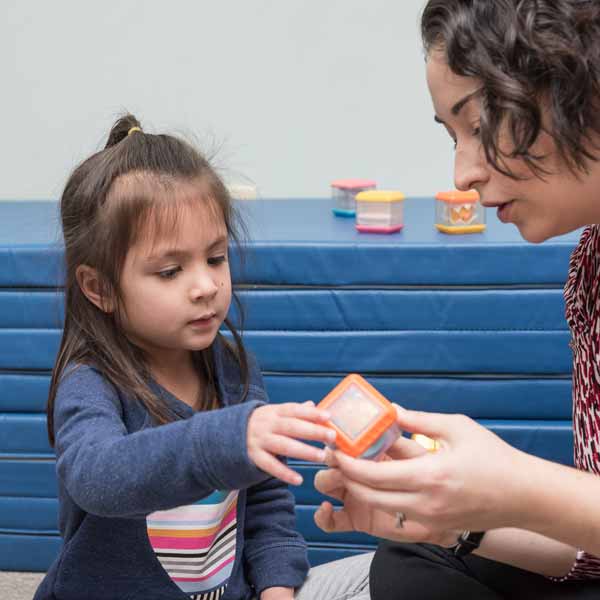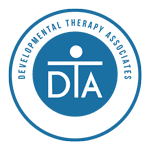
Our Speech Therapy Services in Raleigh, Cary, Durham & The Triangle Include…

- How we make speech sounds using the mouth, lips, and tongue. For example, we need to be able to say the “r” sound to say “rabbit” instead of “wabbit.”
- Signs of a speech articulation disorder:
- Says p, b, m, h, and w incorrectly in words most of the time (1–2 years)
- Says k, g, f, t, d, and n incorrectly in words most of the time (2–3 years)
- Produces speech that is unclear, even to familiar people (2–3 years)
- Childhood Apraxia of Speech (CAS):motor speech disorder that makes it
difficult for a child to speak due to challenges with learning and carrying out
complex sequenced movements necessary for intelligible speech- Signs of CAS:
- Does not always say the word the same way every time
- Distorts or changes sounds
- Can say shorter words more clearly than longer words
- Delayed expressive language, but normal receptive language
- Difficulties with fine motor, reading, spelling, and writing
- Signs of CAS:
- Augmentative and Alternative Communication (AAC): Includes all the ways someone communicates besides talking.
- May include:
- Gestures and facial expressions
- Writing, drawing, spelling words
- Sign Language
- High tech communication devices with softwarde on an iPad or tablet to communicate
- This is the rhythm of our speech. We sometimes repeat sounds or pause while talking. People who do this a lot may stutter.
- Signs of a fluency disorder:
- Struggles to say sounds or words (2½–3 years)
- Repeats first sounds of words—”b-b-b-ball” for “ball” (2½–3 years)
- Pauses a lot while talking (2½–3 years)
- Stretches sounds out—”f-f-f-f-farm” for “farm” (2½–3 years)
- RECEPTIVE LANGUAGE: refers to the skills involved in understanding language
- Signs of a voice disorder:
- Struggles to identify common objects
- Struggle to follow directions without multiple repetitions
- Consistently misunderstands what is asked or said
- Seems uninterested when people are speaking
- Signs of a voice disorder:
- EXPRESSIVE LANGUAGE: refers to the skills involved in communicating ones thoughts, wants/needs, and feelings to others.
- Signs of an expressive language disorder:
- Struggling to put words together to formulate a thought or idea
- Repeating or “echoing” another person’s words
- Difficulty answering questions
- Being unable to start or hold a conversation
- Signs of an expressive language disorder:
- PRAGMATIC LANGUAGE SKILLS: Pragmatics is the study of speaker-listener intentions and interactions, and all elements in the environment surrounding the message. It is often referred to as social language skills.
- Signs of a pragmatic language disorder:
- Difficulty with greetings
- Inability to introduce or maintain topic
- Struggling to make inferences or understand jokes
- Difficulty taking turns in play or conversation
- Trouble making eye contact when conversing with peers
- Signs of a pragmatic language disorder:
Our Language Therapy Services in Raleigh & The Triangle Include…

- What words mean. Some words have more than one meaning. For example, “star” can be a bright object in the sky or someone famous.
- How to make new words. For example, we can say “friend,” “friendly,” or “unfriendly” and mean something different.
- How to put words together. For example, in English we say, “Peg walked to the new store” instead of “Peg walk store new.”
- What we should say at different times. For example, we might be polite and say, “Would you mind moving your foot?” But, if the person does not move, we may say, “Get off my foot!”
- A language disorder may be spoken and/or written (reading and writing). It may also be receptive (understanding) and/or expressive (talking, reading, writing, or signing).
- Signs of a language disorder:
- Doesn’t smile or interact with others (birth–3 months)
- Doesn’t babble (4–7 months)
- Makes few sounds (7–12 months)
- Does not use gestures (e.g., waving, pointing) (7–12 months)
- Doesn’t understand what others say (7 months–2 years)
- Says only a few words (12–18 months)
- Doesn’t put words together to make sentences (1½–2 years)
- Says fewer than 50 words (2 years)
- Has trouble playing and talking with other children (2–3 years)
- Has problems with early reading and writing skills
- for example, may not show an interest in books or drawing (2½–3 years)
